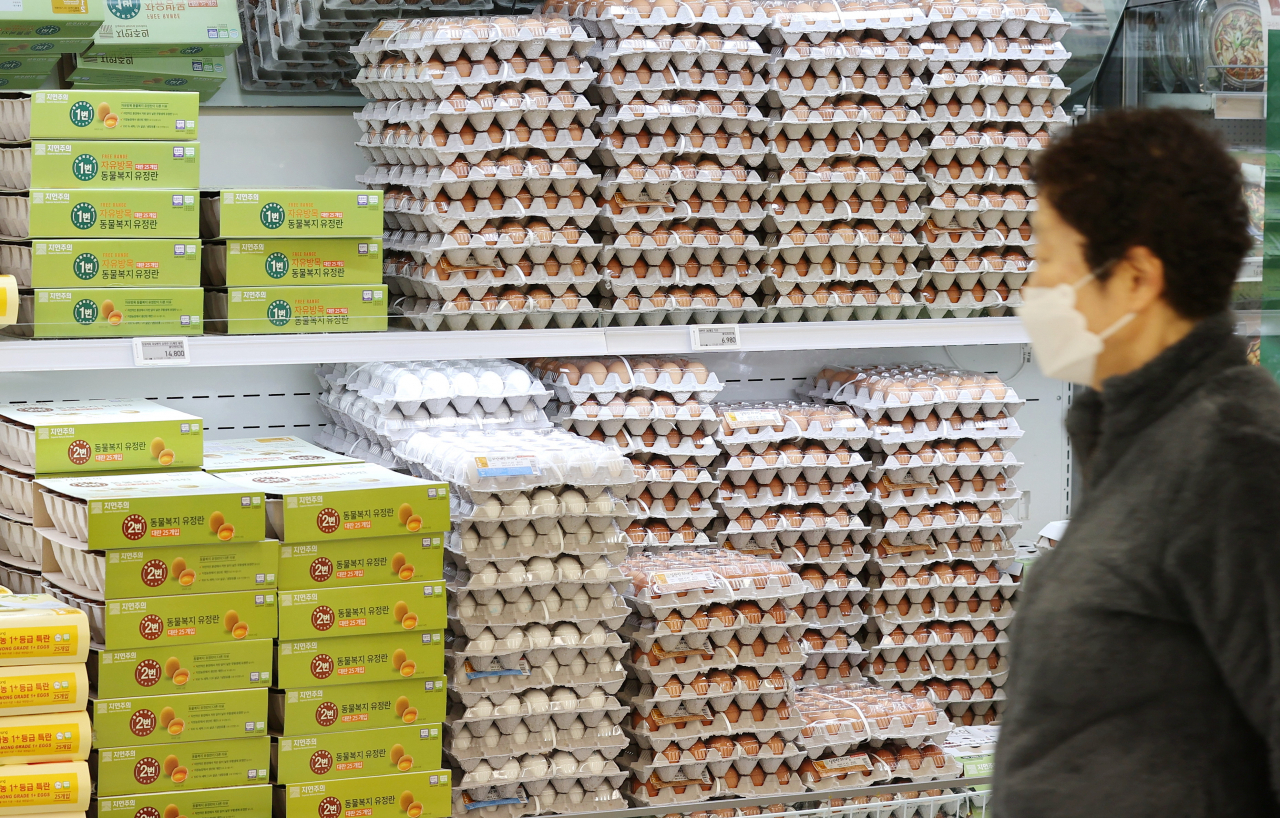 |
A person shops for eggs at a large supermarket chain store in Seoul. (Yonhap) |
The nation’s 38-year-old food expiration date system will be revised from next year to be based on use-by dates of food items, not sell-by dates, in an attempt to reduce food waste.
The use-by date refers to the last day food can be consumed. If the food is older than that date, the consumer should not eat, freeze or cook the food as it may cause food poisoning.
For decades, Korea has adopted a scheme based on the sell-by date, which reflects the producer’s estimate of when a food item tastes best. The date refers to the last day the flavor, smell or texture of a food product may be at its optimal quality.
Despite no safety concerns, most consumers here have long considered the sell-by date as the time to dispose of food.
The planned revision comes as the use of sell-by dates is leading to premature tossing of food that is still safe to eat.
According to the National Food Safety Information Service, 5.48 million tons of food is thrown out annually, requiring 1.96 trillion won ($1.5 billion) to be spent on food disposal.
The government predicted this adoption of the use-by-date method is expected to save 886 billion annually, over the next 10 years.
However, food producers and retailers express concerns about the new scheme, saying they could be faced with a slew of complaints from customers about the lowered quality of food.
"Food products differ greatly in characteristics, and the quality of some packaged foods can be lowered very quickly the longer they are kept," an official from a local food distributor who wished to remain anonymous told The Korea Herald.
"Careful designation of use-by dates for different food categories would need to be made, after analyzing each food product's characteristics," he said.
He added that for small and mid-sized companies, it could be costly and burdensome to autonomously set use-by dates for each of its products.
Although the Ministry of Food and Drug Safety offers some guidance on the new labeling, it is food companies themselves who are responsible for putting use-by dates on each product after reviewing safety of all food products.
In order to reduce concerns and confusions in the earlier stage, the ministry has also set up a grace period for the new scheme.
Accordingly, the Ministry of Food and Drug Safety has set up a grace period to observe and minimize problems from Jan. 1 to Dec. 31, 2023.
Adding to that, the ministry also decided to allow businesses to put both use-by and sell-by dates together during the grace period, considering the burden of replacing current product packages.
Despite the adoption of the new scheme, milk will be allowed to be marked with the sell-by date, the ministry said, citing a lack of preparedness in the distribution channels.
"It will be difficult to change the food date labeling system that has lasted for 38 years all at once, but the new system will reduce food waste and provide clear information to consumers,” a ministry official said.







